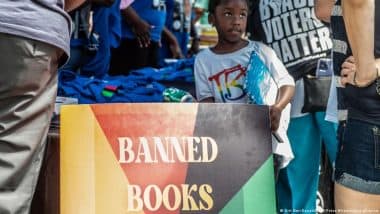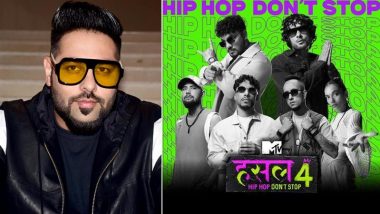Former US President Barack Obama has written an open letter criticizing right-wing efforts to ban books from public school libraries. Even more troubling is the parallel rise of book bans in democracies across the globe.Last year, a record number of 2,571 unique book titles were targeted for censorship in US public schools, often by parent-led groups. That's according to statistics released in March by the American Library Association (ALA), and it represents a 38% increase from the 1,858 unique titles targeted for censorship in 2021. The majority of these titles were written by or about members of the LGBTQ community and people of color. That trend shows no sign of slowing.
Also Read | World News | Russia, China Conduct Joint Sea and Air Exercises in Sea of Japan.
Deborah Caldwell-Stone, director of the ALA’s Office for Intellectual Freedom, writes, "Each attempt to ban a book by one of these groups represents a direct attack on every person's constitutionally protected right to freely choose what books to read and what ideas to explore,"
Also Read | India News | Rajasthan Minister Rajendra Gudha Questions Own Govt on Crimes Against Women.
Now the ALA has support in the form of an open letter from former US President Barack Obama, in which he criticizes the "profoundly misguided" right-wing efforts to ban books from public school libraries. He emphasizes that some of the books that shaped his own life and the lives of many others are now being challenged by those who disagree with certain ideas or perspectives.
Who is behind the recent book bans in the US?
Attempts to ban books in the US have become more organized in recent years, with right-wing minorities targeting books on LGBTQ topics or featuring Black characters and issues. Banning campaigns are orchestrated by groups like Moms for Liberty, which advocates for school book bans; Parents Defending Education, which strives to counter activists' efforts to introduce "harmful agendas" into schools; and No Left Turn in Education, which is co-leading opposition to the teaching of critical race theory (CRT) - an academic framework that emerged in the 1970s to understand and challenge systemic racism and its impact on society.
It's not only single titles these groups want to ban, but multiple titles at once. According to the ALA, 40% of last year's attempts were aimed at censoring 100 books or more at a time.
And because these groups are so well-organized, they are being heard by politicians seeking electoral advantages, as in the case of Florida Governor Ron DeSantis. The Republican is running for president in the upcoming 2024 election. In 2022, he signed a punitive yet vaguely-worded state law concerning education, the Stop-Woke Act. It was ultimately struck down by a Florida judge but Florida schools and universities continue to self-censor themselves for fear of breaching the law.
The effectiveness of such campaign groups has led politicians in 10 US states to enact legislation to increase parental control over library content or restrict students' access to certain materials.
Barack Obama has come out in support of the Unite Against Book Bans campaign led by the ALA, which aims to counter attempts at censorship.
Black and LGBTQ literature in the crosshairs
In his open letter, Barack Obama explained how reading about people with vastly different lives helped him to empathize with them. Such books are invaluable for understanding society, he added.
He expressed special concern regarding the censorship of minority authors. Black-authored books subjected to school bans and censorship in various states include contemporary works such as, "The Hate U Give" by Angie Thomas, a powerful novel addressing racism and police violence; "Monday's Not Coming" by Tiffany D. Jackson, which sheds light on missing Black girls and women; and "All Boys Aren't Blue" by George M. Johnson, a memoir-manifesto exploring the experiences of a queer Black man.
Historically relevant books are also in the eye of the censorship storm, among them Alice Walker's Pulitzer Prize-winning novel "The Color Purple," which faces challenges for explicit content; and "The Bluest Eye," an examination of race, class, and gender by Toni Morrison, who won the Nobel Prize in Literature for it.
The US is 'inspiring' education censorship in other democracies
Barack Obama also emphasizes that it is "important to understand that the world is watching. If America — a nation built on freedom of expression — allows certain voices and ideas to be silenced, why should other countries go out of their way to protect them?"
And, indeed, he has a point. Other English-speaking democratic countries, like the UK, Canada, Australia or New Zealand, already seem to take inspiration from the US. Ajazeera reports that as in the United States, governments in those countries are giving in to parents, religious groups or other staunch right-wing conservatives who push for these bans.
In the UK, for instance, there's a growing concern about critical race theory in schools, leading to the censorship and removal from school shelves of books exploring systemic racism, as well as children's books on diversity and LGBTQ identities. Canada is also witnessing parental groups requesting bans of books with LGBTQ content and seeking changes in curricular topics related to critical race theory. And Australia's Senate voted against the inclusion of critical race theory in the school curriculum in 2021.
Other major democracies in the world have made headlines by banning or censoring books in recent years, too.
Hungary, Turkey and Brazil: Democracies banning or censoring books
In Europe, the most notorious case of censorship lies in Hungary. While not explicitly banning books, in 2021 the Hungarian government ordered bookshops to seal and wrap all books suspected of promoting homosexuality, gender transitioning or containing "explicit" depictions of sexuality before selling them to individuals under the age of 18. Bookstores that don't abide by the law have to pay hefty fines — like a Budapest bookstore that recently displayed the award-winning young adult graphic novel "Heartstopper" in the children's section of the store. It was fined approximately €32,000 ($35,600).
Turkey has imposed a ban on the sale of children's books like "Good Night Stories for Rebel Girls," a collection of empowering stories about women from history.
Also in Brazil, there have been concerted efforts against "indoctrination" and "gender ideology" in schools in the past. Lawmakers have introduced more than 200 legislative proposals to ban gender and sexuality education since 2014. As of May 2022, the rights group Human Rights Watch has verified that at least 21 laws directly or indirectly prohibiting gender and sexuality education were still in effect in the country. Although the newly elected Brazilian government under president Luiz Inácio Lula da Silva does not support book bans, they continue to take place at the local level, as the Brazilian newspaper Estado de Minas reported recently.
Edited by Tanya Ott
(The above story first appeared on LatestLY on Jul 21, 2023 09:10 PM IST. For more news and updates on politics, world, sports, entertainment and lifestyle, log on to our website latestly.com).




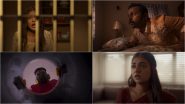
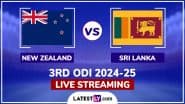

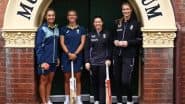





 Quickly
Quickly








